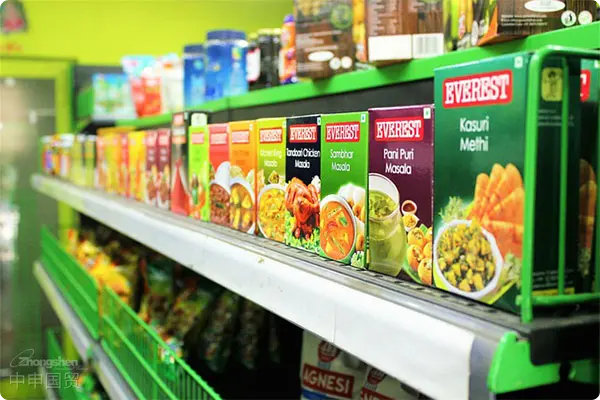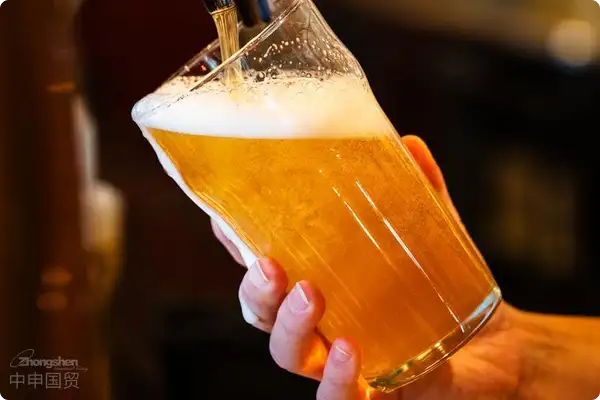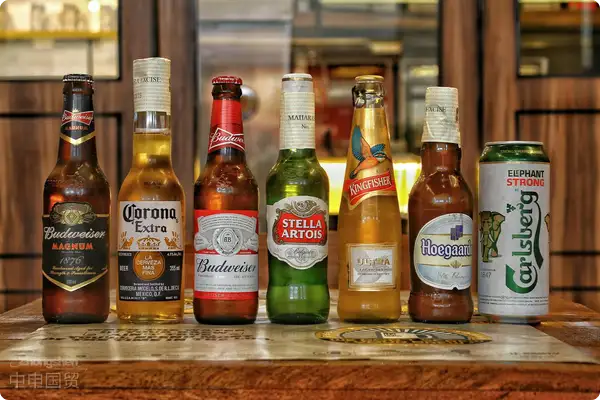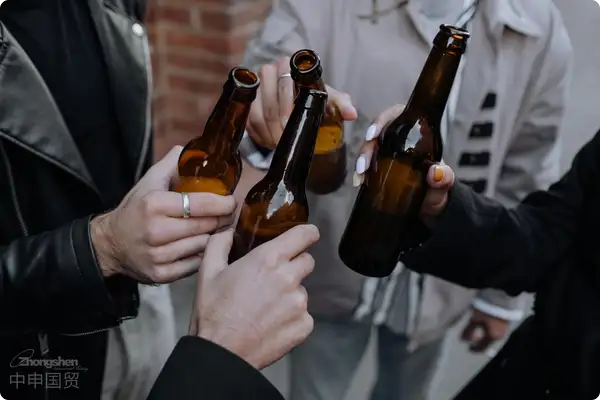- Shanghai Zhongshen International Trade Co., Ltd. - Two decades of trade agency expertise.
- Service Hotline: 139 1787 2118
The demand for imported health foods is growing globally, especially as health awareness increases, with consumers demand for high-quality health foods continuing to rise. However, at the same time, the regulatory oversight of health foods is becoming stricter in various countries, particularly in China. Today, we will provide a detailed introduction to the regulatory requirements for imported health foods to help companies better understand and comply with the relevant regulations.

I. Definition and Differences of Health Foods
Definition of Health Foods:
According to the National Food Safety Standard for Health Foods (GB 16740-2014), health foods refer to foods suitable for consumption by specific populations, claiming to have specific health functions or intended to supplement vitamins and minerals, and are not intended to treat diseases, posing no acute, subacute, or chronic harm to the human body.
Difference Between Health Products and Health Foods:
Health products do not have a clear legal definition and generally refer to products that may have certain health benefits for the human body. In contrast, health foods have a clear legal definition and registration approval process, with their safety and efficacy subject to stricter regulation.
Difference Between Health Foods, General Foods, and Drugs:
The main difference between health foods and general foods is that health foods can claim specific health functions. The difference between health foods and drugs is that health foods cannot be used to treat any diseases.
II. Regulatory Basis for Health Foods
The Food Safety Law of the Peoples Republic of China
This law is the cornerstone of food safety in China, stipulating the responsibilities of all parties involved in the production, distribution, sale, and consumption of food. For health foods, this law clarifies the safety standards that production enterprises must adhere to during production, requiring that the production and sale of health foods must obtain approval from relevant authorities and strictly comply with the content on labels and advertisements. Additionally, it establishes corresponding legal liabilities for violations of the food safety law.
The Health Food Registration and Administration Measures
This is a more specific regulation for the supervision of health foods, stipulating the detailed requirements for the definition, production, sale, labeling, and advertising of health foods. These measures require that all health foods must undergo a rigorous approval process before entering the market, including evaluations of hygiene safety and efficacy components. They also stipulate that health food production enterprises must meet certain production conditions and quality management systems.
The Customs Tariff of the Peoples Republic of China divides plastics and their products into two sub-chapters:import and exportThe Food Safety Administration Measures
This regulation specifies the safety requirements for imported and exported foods, including health foods. It outlines the inspection and quarantine procedures, regulatory requirements, and the registration and management of import and export food enterprises. For imported health foods, it requires compliance with Chinas food safety standards and strict inspection and approval by China Customs and other relevant authorities.
The National Food Safety Standard for Health Foods (GB 16740-2014)
This is a national standard specifically for health foods, detailing the classification, functional requirements, ingredient restrictions, and testing methods for health foods. The standard aims to ensure the safety and efficacy of health foods, providing specific scientific basis for their production, testing, and supervision.
These laws and regulations collectively form the legal framework for the import of health foods, aiming to ensure the safety and legality of imported health foods.
III. Registration Process for Imported Health Food Enterprises
For overseas health food production enterprises seeking to enter the Chinese market, the following registration process must be completed:
Application Stage
Evaluation of Overseas Production Enterprises:Overseas production enterprises of health foods must first undergo evaluation and inspection by the competent authorities of their respective countries or regions. This step is to confirm that the enterprise meets the registration requirements of China Customs.
The applicant can submit the application through the Internet + Customs platform of the General Administration of Customs in the animal and plant quarantine module.Once recommended by the local competent authority, the enterprise should submit application materials to the General Administration of Customs of China. These materials typically include basic enterprise information, product descriptions, production processes, and quality control systems.
Submission via System:Unless otherwise agreed, the registration, modification, renewal, or cancellation applications for overseas food production enterprises should be submitted through the Import Food Overseas Production Enterprise Registration Management System of the General Administration of Customs of China.
Acceptance Stage
Document Review:The General Administration of Customs will conduct a preliminary review upon receiving the application materials. If the materials meet the requirements, they will be accepted.
Requirements for Correction:If the application materials do not meet the legal form or are incomplete, the General Administration of Customs will notify the applicant of the required corrections within 20 working days from the date of receiving the application materials.
Evaluation and Review Stage
Work of the Evaluation Team:Based on risk analysis and actual work requirements, the General Administration of Customs may organize an evaluation team to assess and review the overseas food production enterprises applying for registration. This may include methods such as document review, video inspection, and on-site inspection.
Review:The evaluation team will submit the completed evaluation report to the General Administration of Customs for review.
Registration and Notification Stage
Registration Decision:Based on the evaluation and review results, the General Administration of Customs will decide whether to register the enterprise and assign a corresponding China registration number.
Written Notification:For enterprises that pass the registration, the General Administration of Customs will notify the competent authorities of the country or region or the enterprise itself in writing. For enterprises that do not meet the requirements, registration will be denied, and the reasons will be explained in the notification.
Subsequent Maintenance
Changes, Renewals, and Cancellations:Registered enterprises must promptly update their information in accordance with regulations if there are any changes during operation. When the registration is due for renewal or needs to be canceled for specific reasons, the corresponding procedures must also be followed.
Annual Review: In certain cases, registered enterprises may need to participate in an annual review organized by the General Administration of Customs of China to maintain their registration status.
IV. Customs Compliance Assessment for Imported Health Foods
China Customs conducts various conformity assessment activities for imported health foods, including but not limited to:
Conformity Certificate Inspection
Registration Certificate Inspection:For all imported health foods, Customs first verifies whether the overseas production enterprise has obtained registration from the General Administration of Customs of China and whether it holds a valid registration certificate or record certificate.
Label and Instruction Manual Review:Inspect whether the labels and instruction manuals of health foods comply with Chinese standards, including but not limited to product name, ingredient list, health function, usage method, precautions, etc.
Relevant Certificates:Inspect and verify other relevant certificates, such as health certificates, free sale certificates, etc.
Document Review
Document Review:Customs will review the documents accompanying the goods, including commercial invoices, packing lists, bills of lading/waybills, etc., to ensure consistency and completeness of information.
Product Details Review:Verify product details to ensure consistency with registration information and label declarations.
On-site inspection
Sample inspection:Customs officers conduct sampling inspections on imported health foods based on risk assessment results to check for illegal ingredients or substances exceeding regulatory limits.
Visual inspection:Assess whether the product packaging is intact and whether label information is clearly visible.
Supervisory sampling inspection
Regular sampling inspection:Even if health foods have obtained import permits, customs will still conduct regular or irregular supervisory sampling inspections during product circulation.
Tracking of non-compliant products:For products with a history of non-compliance, customs will increase the frequency and scope of sampling inspections.
Review of import and sales records
Record retention:Importers must maintain detailed import and sales records for customs review.
Traceability:Customs evaluates the importers product traceability system to ensure product flow can be tracked when necessary.
Handling of non-compliant products
Notification of non-compliance:If imported health foods are assessed as non-compliant at any stage, customs will notify the importer and issue a non-compliance certificate.
Return or destruction:Non-compliant health foods must be returned or destroyed under customs supervision.
Rectification and re-evaluation:Importers must rectify the causes of non-compliance, and rectified products can reapply for evaluation.
For foreign manufacturers and exporters looking to enter the Chinese market, understanding and strictly complying with Chinas relevant laws and regulations is key to successful market entry. At the same time, consumers need to raise their awareness to correctly identify and choose legally compliant health foods to ensure their health rights are not compromised. In todays rapidly developing global health industry, following the correct regulations and procedures not only protects consumer health but also promotes the healthy and sustainable development of the entire industry.
Related Recommendations
Category case
Contact Us
Email: service@sh-zhongshen.com
Related Recommendations
Contact via WeChat

? 2025. All Rights Reserved. 滬ICP備2023007705號-2  PSB Record: Shanghai No.31011502009912
PSB Record: Shanghai No.31011502009912









